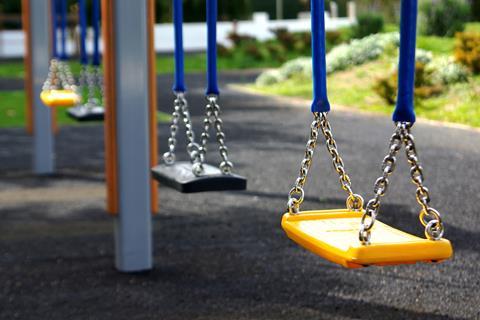Each winter for many years, respiratory syncytial virus has done to paediatric services what covid has done to adult ones. So why does it often remain a little-known condition, and how could its impact be reduced? Claire Read reports.

This piece was fully funded and initiated by Sanofi who worked with HSJ to decide on the topic it covers. HSJ wrote the piece and retained full editorial control over it. Sanofi were able to review this report in advance of publication for factual accuracy and compliance checks.
Simon Drysdale is well aware that one of the conditions in which he specialises is regarded in some quarters as somewhat niche. And so Dr Drysdale, a consultant in paediatric infectious diseases at St George’s University Hospitals Foundation Trust, has come up with an analogy to explain just why respiratory syncytial virus (RSV) is an area worthy of greater attention.
“I describe RSV within paediatrics as a microcosm of what covid is for adults and the world,” he says. “RSV doesn’t have the impact on the public like covid has done but, in the tiny world of paediatrics, it has meant that every winter was like covid.
Sponsored by
Widespread impact
“The wards and intensive care units are completely full of babies with one virus. We cancel elective surgery because we have so many babies with one virus. We transfer children around the country because there are no beds within local hospitals because they are full of children with one virus.”
The figures bear this out. RSV impacts nearly all infants, with 90 per cent contracting it before they reach the age of two.[1] While it causes only mild respiratory illness in most cases, in others it can lead to serious illness – it contributes up to 30,000 infant hospitalisations annually[2], and six per cent of those children will require intensive care.[3] The majority of the acute burden is found in babies under a year old. Most hospitalised infants are previously healthy without known risk factors other than young age.[4]
“Two to four percent of babies born every year are admitted with bronchiolitis [a chest infection which causes the bronchioles, the smaller airways in the lungs, to narrow and so makes breathing difficult]. That’s one in 25 of every baby born every year, and 80% of that bronchiolitis is due to RSV,” says Dr Drysdale. “As a proportion, there’s nothing in adults that event gets close to that [for hospitalisations].”
But because the overall numbers appear small – 30,000 paediatric admissions a year with RSV, compared to the hundreds of thousands of adults who come in with a stroke or heart attack – Dr Drysdale fears the extent of the issue is underestimated and insufficient focus given to it.
Your average person on the street has never heard of RSV and with non-clinical people within the hospital there’s a pretty good chance they won’t know what it is; what impact it has on paediatric wards or children or families
An often-unfamiliar condition
That includes among parents, who are often unfamiliar with the condition[5]. “RSV has a major PR problem,” he concludes. “Your average person on the street has never heard of it and with non-clinical people within the hospital there’s a pretty good chance they won’t know what it is; what impact it has on paediatric wards or children or families.”
There have been efforts to change this – notably, the charity Bliss ran an awareness campaign targeted at families last winter. And, in some ways, it may be that now is a particularly valuable time during which to build public understanding.
“The very strict infection prevention and control precautions that everyone took during lockdown – not going out, not meeting people – completely obliterated the normal season that you would normally get with RSV,” explains Simon Nadel, consultant in paediatric intensive care at Imperial College Healthcare Trust.
“We never saw any RSV, or any flu, or any other kind of respiratory infection. We always assumed that these were set in stone these epidemics, that every winter we would get huge waves of RSV and flu and that there was nothing we could do about it until vaccination came along. But RSV completely disappeared, which I think does give us an important lesson as to how these infections are transmitted.”
Using infection prevention lessons
Neither he nor Dr Drysdale is suggesting that a covid-style lockdown to prevent RSV is practical or desirable. But what they do argue is that the personal measures many have taken to avoid covid could, with public education, be valuably extended to other respiratory viruses.
“I think one very, very small positive from covid is it’s taught us if you wash your hands properly, don’t interact with people, wear masks, use hand gel, then RSV vanishes,” says Dr Drysdale. “And it does mean we should be banging the drum that you should keep your baby away from people who are coughing and spluttering and wash or gel your hands regularly.”
Reducing levels of RSV infection could ultimately serve to reduce pressure on health services that are already under extreme pressure even before winter hits. Dr Drysdale urges boards to provide sufficient resources to enable paediatric teams to manage RSV in the coming months, while recognising the complexities of competing pressures.
“It’s easy for me to say, and it’s not so easy when you’re managing the budget of a big hospital,” he freely acknowledges. But the sort of realistic workforce planning required more broadly across the entire service could and should account for the pressures wrought by RSV. “It’s making sure there are enough people on the ground – whether nursing staff, doctors, allied health professionals or other health service professionals,” he concludes.
MAT-XU-2205531(v1.0)
Date of preparation: December 2022
References:
[1] Wennergren, G, & Kristjånsson, S. (2001) Relationship between respiratory syncytial virus bronchiolitis and future obstructive airway diseases. Eur Respir J 18:1044–1058 doi:10.1183/09031936.01.00254101. Accessed December 2022.
[2] Reeves, RM et al,. (2017) Estimating the burden of respiratory syncytial virus (RSV) on respiratory hospital admissions in children less than five years of age in England, 2007-2012. Influenza and other respiratory viruses. 11(2):122-129. doi:10.1111/irv.12443. Accessed December 2022.
[3] Oxford Vaccines Group. Vaccine Knowledge Project: Respiratory Syncytial Virus (RSV). Accessed December 2022.
[4] Lambert, L et al, (2014) Immunity to RSV in Early-Life. Front Immunol. doi: 10.3389/fimmu.2014.00466. Accessed December 2022.
[5] Wilcox, C, et al, (2019), Attitudes of Pregnant Women and Healthcare Professionals Toward Clinical Trials and Routine Implementation of Antenatal Vaccination Against Respiratory Syncytial Virus: A Multicenter Questionnaire Study. The Paediatric Infectious Disease Journal 38(9): 944-951. Accessed December 2022


























